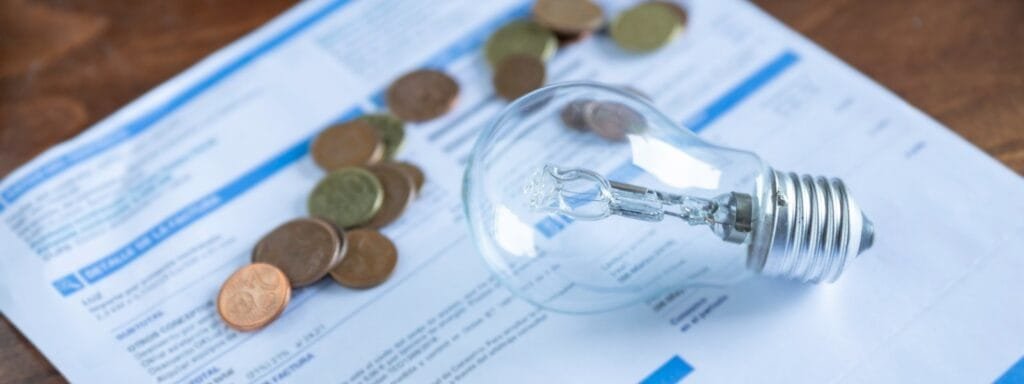With energy prices reaching a record high and the cost-of-living crisis putting extra pressure on household incomes, it’s understandable that you might be struggling to keep on top of your debts. Read on for our guide on how to deal with rising utility bills
Why are utility bills rising?
With winter on its way and the cost-of-living crisis continuing to dominate UK headlines, we’re all facing increased utility bills. But why has energy become so expensive? There are several factors at play, including the lasting economic impact of COVID-19, but the main driver has been rising wholesale gas prices, which have hit a record high. These wholesale prices affect the amount that energy companies pay and they, in turn, are passing these costs on in our household bills.
Should I switch suppliers to find a cheaper deal?
In the past, you might have read advice recommending that you shop around and frequently switch energy suppliers to secure the best deal. While this may have been beneficial in the past, you might now be better off sticking with your current supplier. Unfortunately, there are currently no fixed deals available on the market that offer lower rates than the energy price cap, so you’re unlikely to be able to find a cheaper deal by making a switch. You could also find it more difficult to agree a revised payment plan if you’ve signed on with a new supplier and don’t have an existing relationship in place.
What help is available from the Government?
If you’re struggling to pay your utility bills, there is some help available from the Government. The energy bill price cap comes into force in England, Scotland, and Wales on 1st October 2022 and will remain in place for two years. During this time, domestic energy bills will be capped at £2,500 a year. And that’s not all; under the Energy Bill Support Scheme, every household should receive £400 off their electricity bill, paid in six monthly instalments.
Additional support is on offer for people who are claiming certain means-tested benefits, live with a disability, or take a pension. A one-off cost-of-living payment of £650 will be paid to eligible claimants of Universal Credit, Jobseeker’s Allowance, Employment and Support Allowance, Income Support, Working Tax Credit, and Child Tax Credit. Pensioners who receive a winter fuel payment are eligible for a grant of £300 and a £150 Disability cost-of-living payment is available for those receiving disability benefits.
How can I save money on my energy bills?
While Government support and the energy price cap might ease some of the burden, they might not be enough to make your monthly bills affordable. In that case, there are steps that you can take in your household to keep your energy use as low as possible. If you’re able to invest in home improvements or can ask your landlord to make changes, your home could be made more energy efficient with double-glazed windows and insulation.
Smaller habit changes can make a big difference too. Make sure that you unplug any devices you’re not using such as phone chargers, check that your TV isn’t being left on standby, limit your use of large appliances like the dishwasher or tumble drier, and swap out your standard bulbs for energy-saving light bulbs
What should I do if I’m struggling to pay my utility bills?
If you’re already in debt or finding that money is tight, rising utility bills can put your financial situation under even more pressure. Consider tackling your priority debts first as these can have the most impact if you fall behind. Energy bills, rent or mortgage payments, and council tax are all priority debts and if you’re at risk of falling into arrears with any of these, it might be time to investigate debt solutions.
Contact your energy supplier
Your first step should be to contact your energy supplier. Explain to them that you’re struggling to pay your utility bills and let them know how much you can afford to pay. Depending on your circumstances, they might be able to arrange an affordable payment plan for you. Typically, these plans consider how much you can afford to pay and how much energy you’re likely to use in the future. The resulting payment will include the amount you owe and your current usage.
Apply for breathing space
When you’re faced with rising utility bills, it can be hard to keep a clear head as stress and worry crowd your mind. That’s where breathing space can help. You can reduce financial pressure by applying for breathing space – or the Debt Respite scheme – to give you time to investigate potential debt solutions. While breathing space doesn’t eliminate your debt, it does give you 60 days where you won’t need to worry about any additional interest, fees, or court action from your creditors.
Explore debt solutions
Whether you choose to apply for breathing space or not, securing expert debt advice can also help to reduce financial pressure. There are several debt solutions available and the right option for you will depend on your individual circumstances and financial goals. A debt management plan, for example, is an informal agreement with your creditors that allows you to make affordable debt repayments whereas entering an Individual Voluntary Arrangement (IVA) means you’ll receive a legal document that prevents your creditors contacting you and breaks your debt down into monthly payments for a set time.
If you’d like to explore your debt management options, our team of experts is here to help. Get in touch by calling 0161 660 0411 or send us a message here






